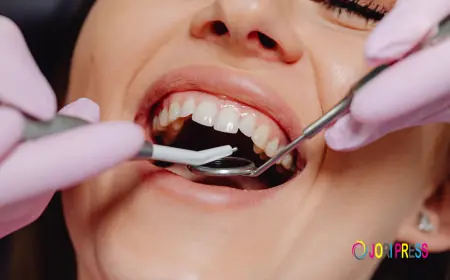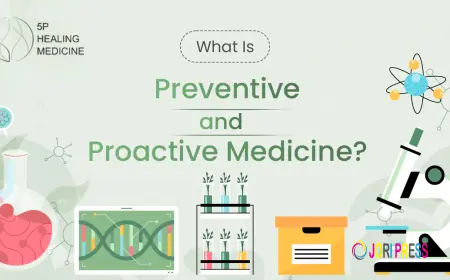Are Dental Hygienists Trained to Handle Dental Anxiety?
Improve your dental health with expert care at Enfield Royal Clinic. Visit the top dental hygienist in Dubai for a healthier, brighter smile today!

Dental anxiety is a common concern that affects individuals of all ages. The fear of dental procedures, instruments, or even the clinical environment can make routine visits stressful. For some, this anxiety can be so intense that it leads to the avoidance of necessary oral care. Understanding this challenge is the first step toward addressing it effectively.
The Role of Dental Hygienists in Patient Comfort
Dental Hygienist Dubai plays a crucial role in creating a welcoming and calming atmosphere. Their work goes far beyond teeth cleaning. They are often the first to interact with patients and set the tone for the entire appointment. Their ability to connect on a personal level is vital in easing nerves and building trust.
Training Focused on Patient Interaction
Dental hygienists receive education that includes more than clinical techniques. They are trained in patient communication, psychology basics, and behavioral management. This enables them to recognize signs of dental anxiety and respond appropriately.
Techniques Used by Dental Hygienists to Ease Anxiety
Calm and Gentle Communication
Hygienists often use a calm and reassuring tone when speaking with patients. They explain each step before beginning and use language that is easy to understand. This transparency helps patients feel more in control and less fearful.
Non-Threatening Body Language
Simple gestures such as maintaining eye contact, smiling, and avoiding sudden movements can help patients feel safer. Hygienists are taught to be mindful of their posture and facial expressions during interactions.
Distraction Techniques
Conversation, music, and even light humor can serve as effective distractions during appointments. Hygienists often engage patients in light, friendly discussions to shift their focus away from anxiety.
Step-by-Step Guidance
Rather than rushing through a procedure, dental hygienists often walk patients through what to expect, giving them time to process each step. This method promotes comfort and minimizes fear of the unknown.
Encouraging Patient Involvement
Hygienists sometimes invite patients to participate in their care by offering simple choices, like selecting the flavor of a polish or giving a thumbs-up signal if a break is needed. These small options make patients feel more involved and respected.
Creating a Positive Environment
The overall setting in which dental care takes place also influences anxiety levels. Dental hygienists contribute to a friendly, warm environment by displaying kindness and patience. This consistent behavior fosters a safe space where patients feel valued rather than judged.
The Impact of Empathy in Dental Care
Empathy is a key trait dental hygienists are encouraged to cultivate. Understanding the emotional experience of an anxious patient helps them adjust their approach accordingly. By showing compassion and patience, they can gradually build confidence in even the most fearful individuals.
Working with Anxious Patients Over Time
Dental hygienists understand that managing anxiety is not always achieved in a single visit. They often take a long-term approach, building rapport over multiple appointments. This continuity can help patients move from dread to comfort with consistent, gentle care.
How Hygienists Support Children and Adults Alike
Dental anxiety can affect anyone, from young children to older adults. Hygienists adapt their techniques to meet the specific needs of different age groups. With children, they may use playful language or storytelling. For adults, a calm and understanding approach tends to work best.
FAQs
Are dental hygienists trained to deal with fearful patients?
Yes, dental hygienists are trained to recognize signs of anxiety and respond with empathy, patience, and supportive communication techniques. Their education includes behavioral strategies to help calm nervous patients.
Can a dental hygienist help someone with a severe fear of dental procedures?
While they are not therapists, dental hygienists play an essential role in supporting patients through their fears. They provide a calm presence, explain procedures clearly, and use gentle techniques to reduce fear and discomfort.
How do hygienists make dental cleanings more comfortable?
They often explain each step before starting, use gentle movements, and check in frequently with the patient. This helps reduce feelings of helplessness and uncertainty during the visit.
Do hygienists work with other dental staff to manage anxiety?
Yes, dental hygienists often collaborate with the wider dental care team to ensure anxious patients receive cohesive and sensitive care. Open communication among the team helps create a seamless and reassuring experience.
What if a patient is too anxious to even schedule a visit?
In such cases, dental hygienists can play a role in initial phone or in-person conversations to offer reassurance and explain what to expect. Sometimes, simply speaking to a compassionate professional is enough to help someone take the first step.
Is it okay to share concerns with a dental hygienist?
Absolutely. Dental Hygienist in Dubai welcomes open communication. Sharing concerns helps them adjust their approach and provide personalized care that meets emotional as well as physical needs.
Building Trust for Long-Term Dental Health
Trust is essential for overcoming dental anxiety, and dental hygienists are often at the heart of this relationship. By consistently offering kind, respectful, and professional care, they help patients build confidence in their dental visits.
Final Thoughts
Dental hygienists are more than skilled professionals—they are compassionate individuals who understand the emotional side of oral care. Their training, experience, and interpersonal skills make them well-equipped to handle dental anxiety with empathy and care. Through thoughtful communication, patient-centered techniques, and a focus on comfort, they help transform fearful visits into positive experiences, one appointment at a time.
What's Your Reaction?
 Like
0
Like
0
 Dislike
0
Dislike
0
 Love
0
Love
0
 Funny
0
Funny
0
 Angry
0
Angry
0
 Sad
0
Sad
0
 Wow
0
Wow
0

















































